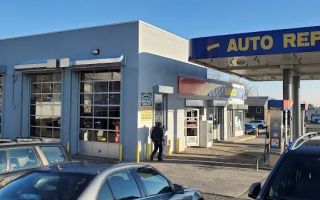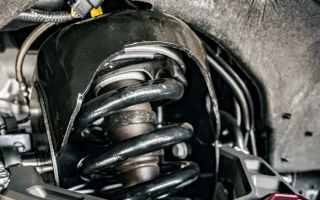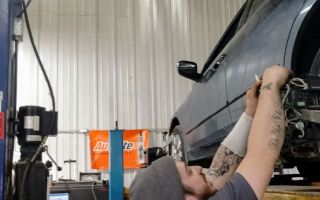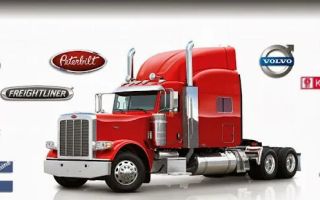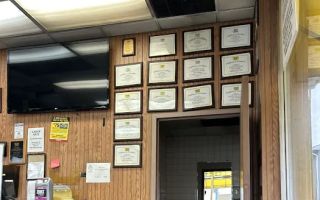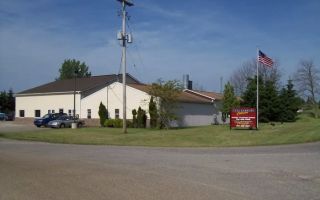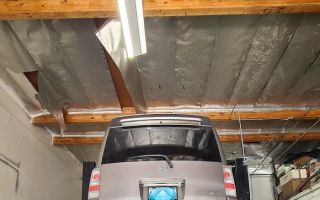What Happens If Your Trailer Breaks Down on a Busy Highway: Essential Steps to Take
- 1. Why Trailer Breakdowns on Busy Highways Are Dangerous
- 2. Immediate Steps to Take After a Trailer Breakdown
- 3. How to Stay Safe While Waiting for Assistance
- 4. When to Call for Roadside Assistance and How to Choose the Right Service
- 5. Tips for Preventing Trailer Breakdowns on Highways
1. Why Trailer Breakdowns on Busy Highways Are Dangerous
Breaking down on a busy highway is one of the most stressful situations a driver can face, especially when towing a trailer. On fast-moving roads with little room for error, the risk of accidents increases significantly. Not only are you stranded in a potentially hazardous environment, but you are also blocking lanes, causing delays for other drivers. The stress of being stuck in this situation can be overwhelming, which is why it's critical to know exactly what to do in such a scenario.
Trailers, in particular, pose additional challenges when they break down. Unlike standard vehicles, trailers don't have a driver to steer them, and their size can make them harder to move or safely park out of traffic. Therefore, understanding how to handle a trailer breakdown is crucial for both your safety and the safety of others on the road.
2. Immediate Steps to Take After a Trailer Breakdown
When your trailer breaks down on a busy highway, the first thing you need to do is remain calm and assess the situation. Here are the immediate steps you should take:
- Move to the Shoulder: If possible, drive your vehicle and trailer slowly to the shoulder or the furthest side of the highway to avoid blocking traffic.
- Turn on Hazard Lights: As soon as you’re safely off the road, activate your hazard lights to alert other drivers to the emergency.
- Ensure Your Safety: If you’re able, exit your vehicle carefully and move to a safe location, away from the flow of traffic.
- Check for Roadside Assistance: If you have a roadside assistance plan, call them for help, as they are equipped to assist with trailer breakdowns.
It’s important to act quickly, but safely. The faster you can assess the situation and get your trailer off the road, the lower the risk of a more serious incident.
3. How to Stay Safe While Waiting for Assistance
While waiting for help to arrive, safety should be your top priority. Here are some important safety tips:
- Stay Inside Your Vehicle: Unless it’s absolutely necessary to exit, stay inside your vehicle with your seatbelt fastened. This reduces the risk of injury in case of an accident.
- Place Flares or Cones: If you have warning flares or cones, set them up behind your vehicle and trailer to give other drivers a clear indication of your location.
- Communicate Your Location: If possible, let family, friends, or your roadside assistance provider know your exact location on the highway.
By following these steps, you ensure that both you and other drivers are as safe as possible while waiting for help to arrive.
4. When to Call for Roadside Assistance and How to Choose the Right Service
If your trailer breakdown is beyond your ability to fix on the spot, it’s time to call for professional help. But when should you call for roadside assistance, and how do you know you’re choosing the right service?
- When to Call: If the breakdown is related to mechanical failure, such as a flat tire, engine issue, or trailer malfunction, it’s time to call for roadside assistance.
- Choosing the Right Service: Look for a service that specifically offers trailer assistance, as not all roadside services are equipped to handle large vehicles. Check for response time, coverage areas, and the type of assistance they provide.
Professional roadside assistance services like Rescue & Towing specialize in trailer breakdowns and can quickly dispatch a team to help you get back on the road safely.
5. Tips for Preventing Trailer Breakdowns on Highways
While trailer breakdowns on highways can sometimes be unavoidable, there are steps you can take to reduce the risk:
- Regular Maintenance: Ensure your trailer is regularly inspected and maintained. Check tires, brakes, and the hitch system before embarking on long trips.
- Monitor Tire Pressure: Low tire pressure is a common cause of trailer breakdowns. Make sure your tires are inflated properly to avoid blowouts.
- Test Your Trailer Lights: Always check your trailer lights and signals before getting on the road to ensure you are visible to other drivers.
By following these preventive measures, you can significantly reduce the chances of encountering a trailer breakdown on a busy highway.
If you're looking for quick and reliable roadside assistance, Rescue & Towing is here to help. Click here to learn more about their services and ensure you're prepared in case of an emergency.


